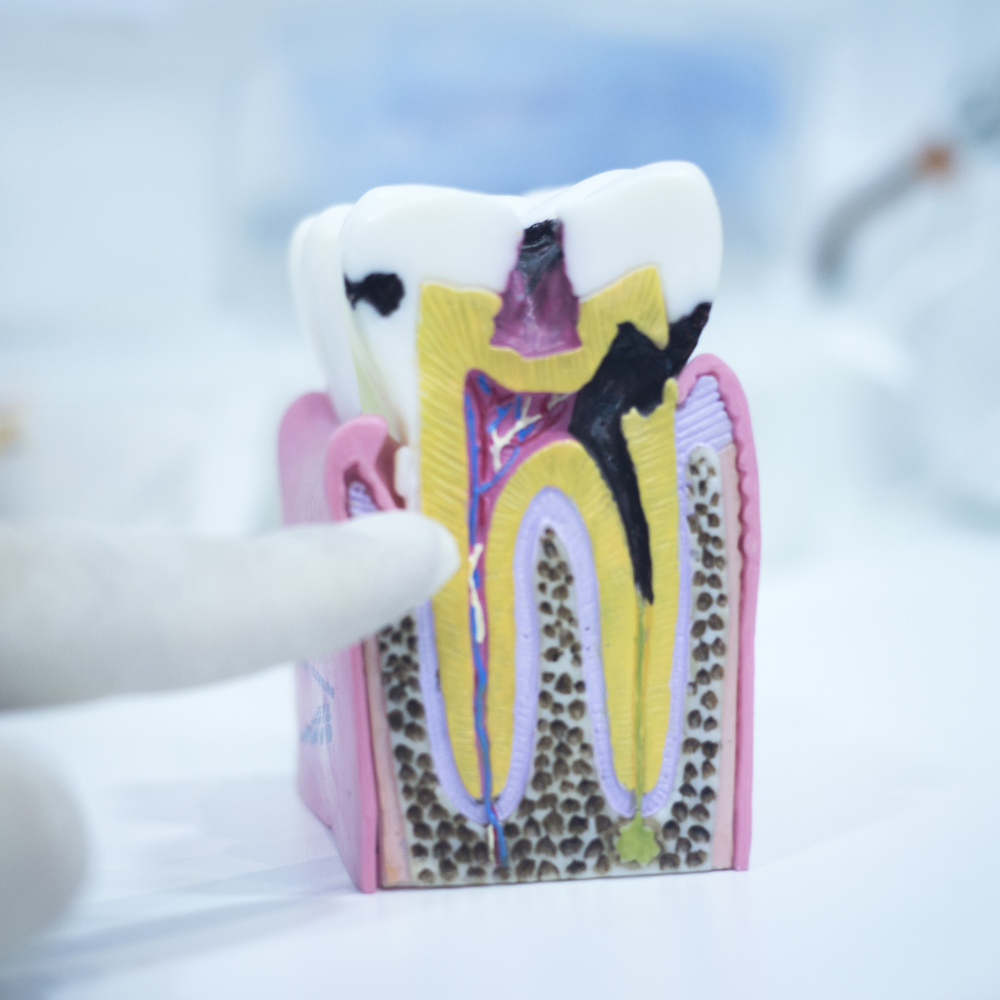Tooth pain can be one of the most discomforting experiences, affecting our ability to eat, sleep, and even concentrate. Understanding the different types of tooth pain and their potential causes is essential for proper dental care and overall well-being.
Sharp, Intense Pain:
Experiencing sharp, intense pain concentrated in a particular tooth or region can stem from various dental issues. Dental caries, commonly known as cavities, are a primary culprit, as decay penetrates the tooth’s inner layers, irritating nerves and resulting in sharp discomfort. Additionally, a fractured tooth, characterized by cracks or breaks, can expose sensitive nerves, triggering acute, piercing pain, particularly upon biting down. Furthermore, an abscess, an infection at the tooth’s root, can lead to severe, throbbing pain that demands immediate attention. Given the seriousness of these potential causes, seeking prompt dental evaluation is imperative to address the underlying problem before it exacerbates.
Dull, Aching Pain:
Experiencing a lingering, dull ache in the tooth or jaw may indicate several potential causes. Bruxism, the habitual grinding or clenching of teeth, often leads to muscle strain and the development of persistent, dull discomfort. Additionally, advanced gum disease can contribute to this sensation by causing gums to recede, thereby exposing tooth roots and generating aching sensations. Another possible culprit is temporomandibular joint (TMJ) disorder, characterized by dysfunction of the jaw joint, resulting in chronic jaw pain and associated toothache. Given the range of potential causes, seeking consultation with a dentist for proper diagnosis and management is crucial. This may involve recommendations for lifestyle changes and dental interventions aimed at alleviating the discomfort and addressing the underlying issues.
Sensitivity to Hot or Cold:
Experiencing sudden, sharp bursts of pain when consuming hot or cold foods and beverages can indicate several potential underlying causes. One common culprit is enamel erosion, where thin or damaged enamel exposes the underlying dentin, leading to sensitivity. Similarly, receding gums can contribute to this sensation as the exposed tooth roots lack the protective layer of enamel, making them more susceptible to temperature changes. Additionally, recent dental procedures such as fillings or crown placements may temporarily increase sensitivity in affected teeth. To alleviate discomfort, using desensitizing toothpaste and avoiding extreme temperature foods can offer relief. Persistent sensitivity should prompt a dental evaluation to address the underlying issue and prevent further discomfort.
Pain on Chewing:
Experiencing pain or discomfort while chewing or biting down can be indicative of various underlying issues. A cracked tooth, resulting from trauma or wear, can lead to pain when pressure is exerted during chewing. Similarly, advanced tooth decay weakens the tooth structure, causing discomfort during biting. Loose or dislodged fillings may also contribute to pain when biting down. Seeking a dental examination is essential to pinpoint the source of the discomfort and determine the appropriate treatment. This may involve the placement of fillings, crowns, or other restorative procedures to alleviate pain and restore dental health.
Pain in Multiple Teeth:
Experiencing pain simultaneously in multiple teeth can indicate various underlying issues. Sinus infections often manifest as generalized tooth pain, as pressure from the sinuses can radiate to the upper teeth. Dental infections, such as advanced gum disease or abscesses, may also cause widespread tooth discomfort. Additionally, chronic clenching or grinding of the jaw can lead to generalized tooth pain. Seeking proper diagnosis by a dentist or physician is crucial to identify the root cause of the pain and determine the most appropriate treatment plan. This may involve addressing sinus or dental infections, managing jaw clenching habits, or other interventions tailored to the individual’s needs.
Understanding the different types of tooth pain and their potential causes is essential for effective management and timely intervention. Whether it’s sharp, intense pain or a dull, persistent ache, seeking prompt dental care can alleviate discomfort and prevent further complications. Remember, regular dental check-ups and good oral hygiene practices are crucial for maintaining optimal oral health and overall well-being. At Dentonics, we’re here to support you on your journey to a pain-free smile.

